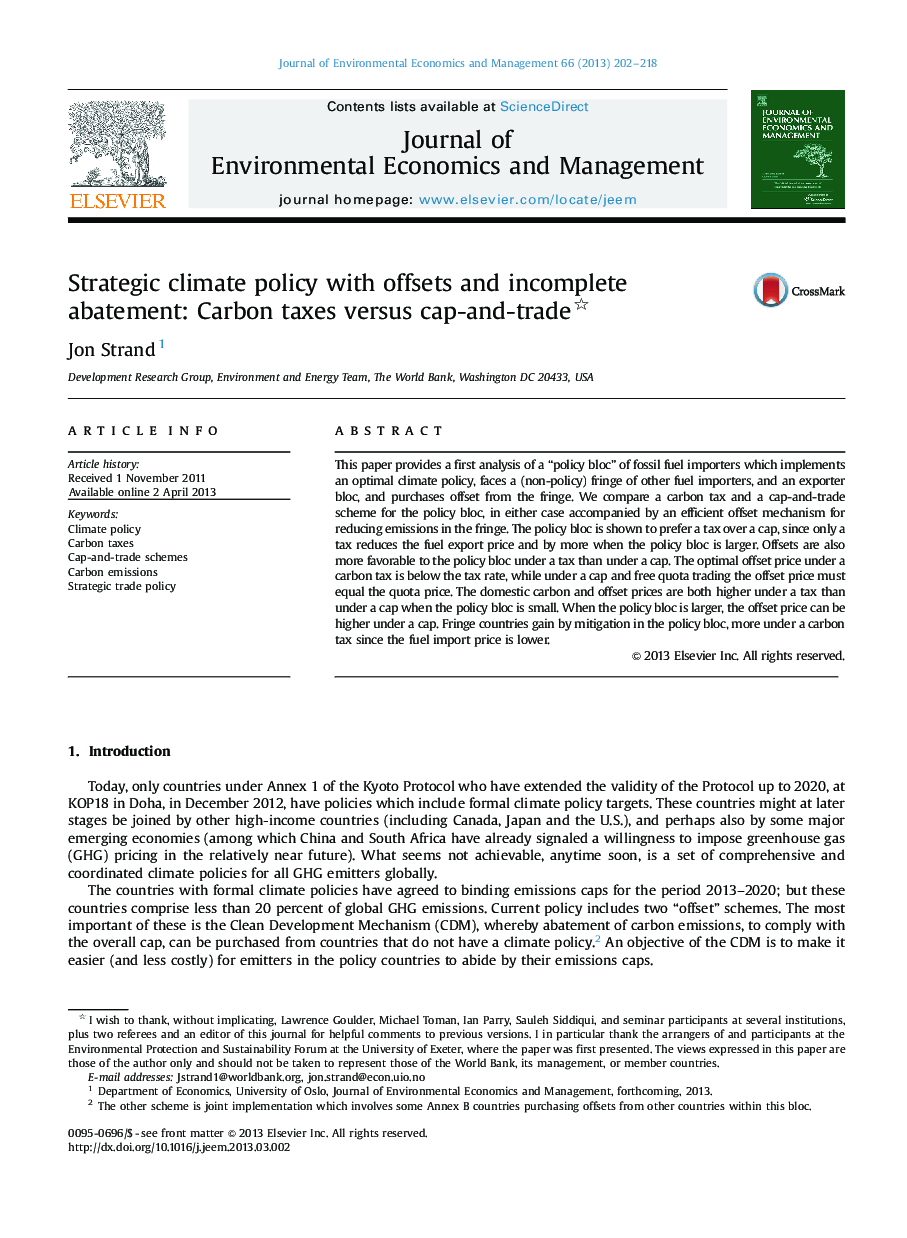| Article ID | Journal | Published Year | Pages | File Type |
|---|---|---|---|---|
| 958827 | Journal of Environmental Economics and Management | 2013 | 17 Pages |
This paper provides a first analysis of a “policy bloc” of fossil fuel importers which implements an optimal climate policy, faces a (non-policy) fringe of other fuel importers, and an exporter bloc, and purchases offset from the fringe. We compare a carbon tax and a cap-and-trade scheme for the policy bloc, in either case accompanied by an efficient offset mechanism for reducing emissions in the fringe. The policy bloc is shown to prefer a tax over a cap, since only a tax reduces the fuel export price and by more when the policy bloc is larger. Offsets are also more favorable to the policy bloc under a tax than under a cap. The optimal offset price under a carbon tax is below the tax rate, while under a cap and free quota trading the offset price must equal the quota price. The domestic carbon and offset prices are both higher under a tax than under a cap when the policy bloc is small. When the policy bloc is larger, the offset price can be higher under a cap. Fringe countries gain by mitigation in the policy bloc, more under a carbon tax since the fuel import price is lower.
